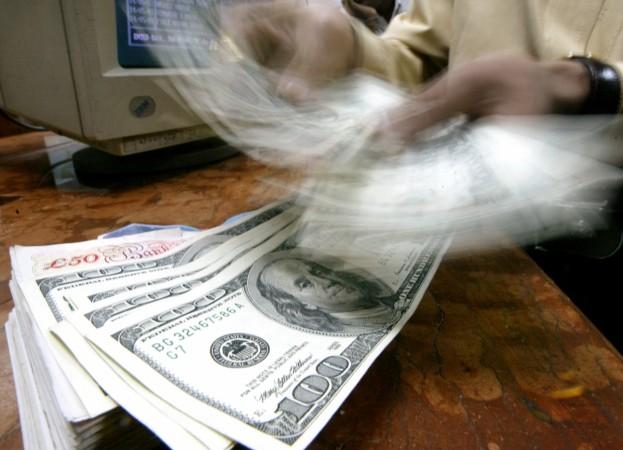
A four-month compliance window, which grants amnesty to those declaring black money under the Income Declaration Scheme 2016, opens on Wednesday. The window is part of a scheme first announced by the central government during the union budget as part of the Krishi Kalyan Cess.
According to a statement issued by the ministry of finance, domestic black money holders will be given an opportunity to come clean by declaring their undisclosed income. This will be taxed at a rate of 30 percent plus a Krishi Kalyan Cess of 25 percent on the taxes payable and a penalty at the rate of 25 percent of the taxes payable, amounting to 45 percent of the income declared under the scheme.
According to a report in The Hindu, the type of assets that can be declared in this window can include houses, land, jewellery, paintings and even cars. The scheme is not restricted to individuals; companies, too, can avail of it.
Declarations made under the scheme will not be used against the persons under the Income-Tax Act. There will also be immunity from the Benami Transactions (Prohibition) Act.
All declarations are to be made before the stipulated deadline of Sep. 30 and the taxes, surcharge and penalty should be paid by Nov. 30. If the declarant fails to pay the entire amount of tax, surcharge and penalty within the specified date, the declaration will be considered void. If that happens, the provisions of the Income-Tax Act will apply to such income as they apply to any other undisclosed income.
The declarations can either be made online on the official e-filing website of the Income Tax department or before the various regional principal commissioners of I-T.
According to a circular issued by the Ministry of Finance, the declarant will be liable for capital gains tax on the sale of such assets in future.
Finance Minister Arun Jaitley has warned the public that tax evaders would be in "serious trouble" if income was not disclosed. He was quoted as saying by the Press Trust of India: "I will advise all those who have any undisclosed asset to declare it and pay the tax and sleep well. Otherwise, the way the disclosures are becoming more and more public, they will run into serious trouble."
The "serious trouble" includes legal provisions that threaten imprisonment, which could be up 10 years, for those who have undeclared overseas assets or income once the compliance window closes. In addition, the violator will have to pay tax of 30 percent and a penalty of 90 percent, effectively losing all of the undeclared wealth, if caught.
"Stringent penalties and prosecution, including rigorous imprisonment up to 10 years and penalty equal to three times of the tax have been prescribed for violation," according to a statement issued by the Central Board of Direct Taxes (CBDT).
The move signals a carrot-and-stick approach by the government to curb the black money menace, an issue that had gained prominence after the Anna Hazare movement and the efforts of the BJP, when it was in the Opposition, to highlight it as an important election issue in the 2014 election.
Sceptisim over the move
The government claims to have robust checks and balances to ensure criminals and corrupt individuals don't take advantage of this declaration window. The scheme will also not apply in relation to the prosecution of any offence punishable under the Prevention of Corruption Act, 1988, the Ministry of Finance has said in its statement.
But in the absence of immunity and confidentiality from other prosecuting agencies and laws such as the Central Excise Act, some experts believe the government is limiting its goals. Suresh Surana, founder of RSM Consulting Group, expressed his scepticism in a recent interview with the Financial Express, saying: "The scheme does not provide any immunity for cases which are covered under the Black Money (Undisclosed Foreign Income and Assets) Imposition of Tax Act, 2015, as well as FEMA and other laws."
According to a report by Rediff Business, another aspect that may deter tax evaders is the tax liability on the declared asset which will be on the appreciated value. Although the government has tried to balance it by extending the capital gains tax benefit when the asset is sold later, it may still create cash flow problems in paying the tax on the appreciated asset within two months of the scheme closing on Sep. 30.
Salient features of the scheme
The scheme requires declaration of undisclosed assets at their fair market value on the date of its commencement, which is June 1. This value will be regarded as the cost of acquisition of the asset for any subsequent transfer.
For instance, if an asset was bought for Rs. 10 lakh a decade ago is valued at Rs. 1 crore on June 1, the declarant will have to pay Rs. 45 lakh as tax (Rs. 30 lakh), penalty (Rs. 7.5 lakh) and a cess (Rs. 7.5 lakh), but the person disclosing the asset may not have Rs. 45 lakh to pay.
According to a report published in the quint, citing Factly, the 1997 policy titled Voluntary Disclosure of Income scheme (VDIS), which led to the declaration of Rs. 33,339 crore and resulted in a collection of Rs. 9,584 crore, was largely successful because of a lower tax rate of 30 percent and less rigorous penal action. According to Finance Minister, Arun Jaitley, the current scheme remedies the earlier scheme as the penalty clause ensures it is not unfair to the honest tax payer.














